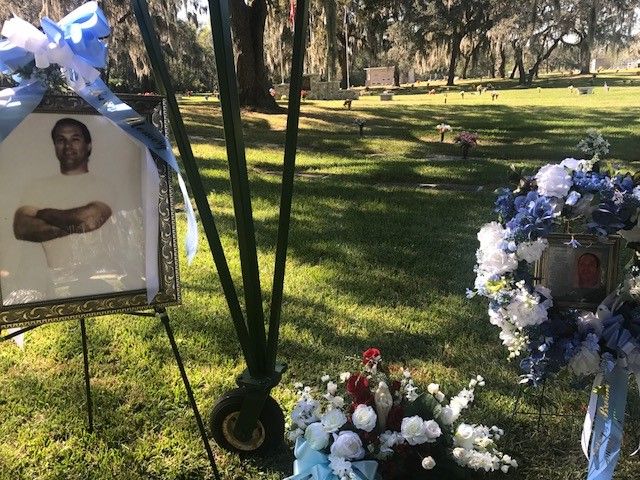What I really want to do is use my limited forum to write an open
letter to England's Prince Harry, but it wouldn't do any good ashe'd
never read it and even if he did it's all but certain that he wouldn't
care about what I have to say.
See here's the thing...as I write this
Prince Harry is in Orlando, Florida hosting the Invictus Games, which is
an organization he founded with what I'm sure was and is the best of
intentions. What they do is provide a forum arguably comparable to the
Olympics but limited to allowing disabled veterans from various nations
to compete against each other in sporting competitions. I'm told by the
media that Invictus means "unconquered"and it's an honorable thing to support those
disabled veterans, although those eligible to compete do not necessarily
have to be disabled during combat, but only be
physically disabled, and a veteran.
As Prince Harry said to the media,
the Invictus Games is intended to provide "a platform for those who
served". And as much as I admire those who do try to help disabled
veterans, I found it contemptable that those who claim to be reaching out
to support disabled veterans deliberately turn a blind eye to the
thousands of disabled veterans that are not politically and socially
acceptable.
For all the bravado of Prince Harry's event held in Orlando,
Florida there was absolutely no mention whatever of those honorably
discharged disabled veterans incarcerated in state and federal prisons
- and you won't hear anyone speaking out in support of those disabled
veterans.
Is it alright to pick and choose which disabled veterans are worthy of
recognition? If you're going to turn a blind eye to any disabled veteran
for no reason but that individual is not socially acceptable, then
you clearly do not respect any veterans. This is especially true given
the
indisputable fact that many of the disabled veterans imprisoned in
America - and there are thousands - are there for conviction of a
crime that would not have happened if not for the physical or mental
trauma they suffered while serving their country.
Florida likes the project this
image of supporting veterans. But what nobody talked about is that the
State of Florida also has one of the highest rates of incarceration in
the world, and has a long history of keeping thousands upon thousands of
those prisoners in long-term
solitary confinement under physically and mentally oppressive
conditions.
More importantly, Florida has a well-documented history of
deliberately denying prisoners basic medical care, including the thousands
of disabled veterans held in Florida prisons. In recent years even both
the state and federal law enforcement applied have conducted
investigations into the systematic denial of basic medical care - but as is only two common, they actually did nothing.
My own care illustrates
what is widespread throughout the Florida prison system. When I was 18
years old and married, I voluntarily enlisted in the Army in the hopes
of
building a life for my new family. But while on duty I suffered an
accident that left me hospitalized, then honerably discharged. When I
left the Army I was thrown back out into the real world, and
permanently physically disabled, with no medical care and unable to
work.Back then in the post-Vietnam America, disabled veterans were
extended the same measure
of respect typically reserved for mangy dogs and considered outcasts or
lepers.
As with so many other disabled veterans, I was left to fend for
myself. And I was married, with a child on the way. As indisputable court
records reflect, without meaningful access to medical care, I turned to
alcohol and illegal drugs to manage my chronic pain I experienced. It
wasn't long before the marriage ended, I lost custody of my children, and
I ended up in prison.
But I wasn't a career
criminal. What sent me to prison for 2 years was my first and only criminal
conviction - a "bounced check", because I had insufficient funds in my own
bank account to cover the check I wrote, I was convicted of a felony and
sent to prison for 2 years.
Fast forward to where I am today...for 32 years
now I've been on Florida's death row now, held continuously in solitary
confinement. Florida has the highest date of wrongful convictions in
capital cases in the country and undoubtedly will not hesitate to
execute innocent men and women, as is evidenced by my own case - neither
the Florida courts or Governor Rick Scott will allow that readily
available evidence substantiating my innocence to be heard. (see http://www.save-innocents.com/save-michael-lambrix.html and www.southerninjustice.net )
Like myself, if you're a disabled veteran in the Florida prison system,
you will not receive any meaningful medical care. Even if you suffer
from
extreme physical pain due to your military induced physical disability,
the Florida prison system will not provide the care necessary to
mitigate
that pain.
And this is why it's bothers me when I see people
like Prince Harry showboating his hand-picked disabled veterans in
Florida, of all places. Do you think even one person involved in these
Invictus games took even a moment to ask how disabled veterans in the
Florida prison system are treated? Of course they didn't, that wouldn't
fit
into their image.
For the past 3 months now, since I was given a stay of
execution, I have been denied even basic medication necessary to manage
my extreme physical pain. I have done everything possible to try to get
help, but nobody will listen. In fact, although there are countless
organization all but competing against each other to perpetuate this
politically popular image of taking care of disabled veterans, you will
not even find one state or national organization willing to help incarcerated disabled veterans.














